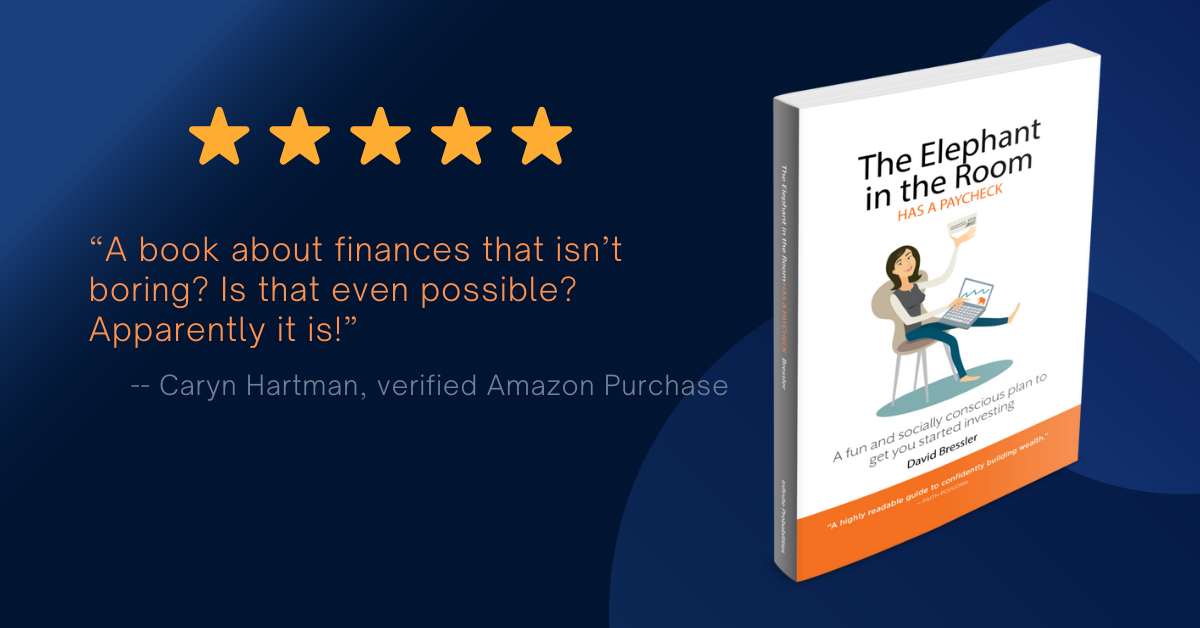I know this sounds crazy, but hear me out.
What if you could have fun while building wealth?
What if having fun made investing even better?
For starters, you have to keep the practical elements of investing separate from the human element. The practical elements of investing include how to pick stocks, structure a portfolio, and more. I don't do that for people, though I do love the 8 rules of dividend investing as a way for people to learn more about building a portfolio.
I'm more into the human element, how to get people started and keep them going, and having fun is a big part of that.
Stay motivated
How do we get motivated to start or stick-with a saving and investing habit?
We know it's good for us is not an answer. We know it's good to eat healthy, not stress out, stop smoking... Knowing is simply not enough for some (I suspect for most).
To have a real impact on people who wouldn't otherwise get started there has to be a different answer than what we hear from all the traditional sources of financial information.
Have fun
Can we make a strategy based on the 8 rules of dividend investing fun? Or is it more homework?
I mean, can we make investing fun all the time? It's certainly fun when we get our dividends. Even more fun to reinvest them, knowing the next dividend will be even larger. And it's amazing when we get dividend raises. But, generally speaking, in between those times it can be a real drag.
Have you ever had a few months where you helplessly watched your portfolio balance get lower? I know I have. It's not fun. Not even close!
Have you ever had to explain to your significant other why you keep adding money to your portfolio, when at the end of the month you still have less than when you started? I know my wife asks if we should "just sell until the market is ready to go back up". I suspect some of your significant others might not be so different from mine.
You are what you measure
I have two metrics that I use to keep people motivated, have fun, and yes, even communicate better with their significant others about money – the Paycheck and the expected raises.
The challenge with only tracking the overall portfolio value is market volatility. The market will go up and down. That’s the way it works. It means your portfolio will go up and down, regardless of how good or bad your investments are doing. When you look at your portfolio value it can make you queasy. It certainly doesn’t support healthy financial habit formation.
The way to build strong habits is to have the reward reinforce the habit. If you save money, but have less, that's not very rewarding. Our brains aren't wired to keep up that sort of habit, and so it's harder than it could be.
Harder than it could be because we could measure something different than portfolio value.
The paycheck
I based my book on measuring good things, starting with the Paycheck - which goes up unless we've made a bad decision (in which case, our habit is still reinforced because we understand that bad decisions lead to bad outcomes).
The Paycheck, in my book's terminology is the total annual dividend you receive from your portfolio. This is not terminology you're going to read anywhere else.
Paycheck growth (expected raises)
Once you track the Paycheck, should you care to track more goodness, you can track the projected raise you'll get from annual dividend increases, dividend reinvestments, and new money saved to your portfolio. You'll find that, including reinvesting dividends, you can get raises of 10-15%... every year.
By measuring the growth of your Paycheck, you're measuring the consistency of your investing strategy over time.
Why limit yourself to tracking the portfolio value as your measure of investing success? Especially if your objective is to invest for dividend income, it makes a lot more sense to have success metrics based on the dividend income you're receiving.
Change your perspective, change your experience
Raises are fun, and it's motivating when you see metrics moving in the right direction a very large part of the time.
A final thought
If you did click through to the 8 Rules of Dividend Investing guide I linked above, rule #8 says:
90% of the benefits of diversification come from owning just 12 to 18 stocks
What if you selected your 12 or so stocks (all other things being equal - meaning, you like them as investments) based on when they paid and raised their dividends?
You could make sure that your raises happened at very short intervals, and that you get a dividend increase almost every month. With 12 companies in your portfolio, that's an average of 5 raises a month.
When you do this, you're are making sure that you're having fun and staying motivated. The value of doing so is truly underestimated.
There are times when investing is going to be hard. It's impossible not to look at the portfolio value - believe me, I've tried. And, sometimes it goes down. A lot! But when that happens, I know my Paycheck has also increased and I was still getting those raises all through the downturn. I was able to hang in there.
You will too.



